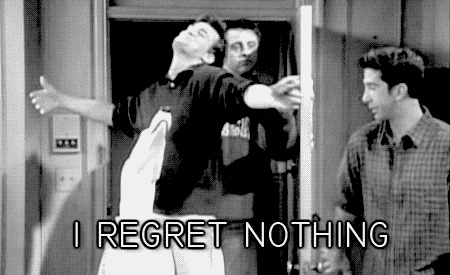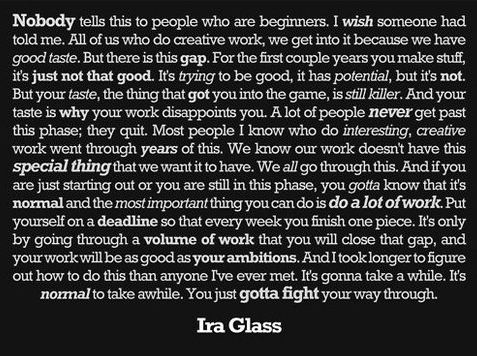I made an awesome discovery. I never knew how important this minor information would be until I learned it, and now, I will never look at the rubber band the same way. Do you know the history of the rubber band? It's a very awesome story full of inventiveness. Let me tell you so it can change your life.
Apparently, the Mayans discovered them by using latex, which is the sap of plants (and the rubber tree!) When it is exposed to the air it hardens into a springy mass, and the Mayans learned to mix the rubber sap with the juice from morning glory vines so that it became more durable and elastic, and didn't get quite as brittle.
That's the completely true story of rubber bands!! Isn't it exciting?!
 Okay, maybe not.
Okay, maybe not.You probably thought I was going to tell you something more interesting. That I was going to do something more interesting.
It's understandable. I did build up that opening so you would expect something extraordinary, which I failed to deliver. And sure, I could've done so it was more interesting. I could've amped up the details. I could've made you care about the topic by introducing a reason to care. I could've made it personal. But I didn't. I built the tension, and then let it crash to the ground
Tension is a big issue for me--and I do exactly this ALL THE TIME.
Over the years (and the drafts!) I've become more aware of this problem. If there were awards for teasing readers with tension, I'd win them all. I have no problem introducing a situation, but I do have a problem playing it up and building it. Christina was actually the first person to point it out to me, and ever since then, I have to always be on guard. I have to look extra hard to see if I'm building or lowering the tension. (Whether it's sexual tension or emotional or physical! It's a consistent thing.)
Tension exists raise the stakes for the character, to work with the conflict to raise the emotional level of a book. If I'm not using it correctly, then I'm killing my novel.
I have an example for you. This selection is from the first draft of my current MS. (Although, since I've written seven drafts and changed the title, I'd say it's probably a different book altogether. And I've changed the names here, just because it's weird.)
After this happens, the characters kiss. (Yes, in the dumpster. I know. WEIRD.) And then they're outside again, back to what they were doing before. **Note: This scene no longer exists in my MS. I think I lost it at third draft.**The flickering light above us dies. Thomas is quiet and I look around. The road is dark. Still. I grab his arm, ignore the spark of our touch, and take a deep breath.“Run,” I say.“Why?”“Because. It’s happening again,” I say.He raises a questioning eyebrow, but I shake my head.“Now. We need shelter.”There are no other words exchanged between us as we both take off in a run. It was almost like being at home, smiling as we run across the beach, sinking in the sand, the wind in our face. Only there was no beach, no sand, no smiling. There was wind—a shrill pitch brought it here. It screeched around us in a fast motion, bringing up trash and tree branches with it.I run, feeling Thomas beside me. He was always beside me, even when he could run faster than me in his sleep. His breaths are steady in my head and somehow, I hear his feet hitting the concrete louder than the roaring wind. I turn to the left and he follows. We jump into an empty dumpster. It smells, despite the decades of not being used. I pray that it still bolted to the ground and Thomas closes the lid. I make out his eyes in the darkness and he wraps his hand in mine, for comfort, just as he has done since we were children.“What is that?”“The Cleaner,” I say.I encountered it three times already. The journey from the southern-most region has not been an easy one. There were many delays, delays that had thrown me off the precious timeline. Five days have passed instead of three. One of the delays was the Cleaner.From what I understand, from what I had seen, it acts as a vacuum. It searches the remains of the empty regions for survivors, for any form of life and it removes them, like a speck of dust on a clean mantel. Like they aren’t living.An old woman I encountered in underground Georgia told me it sent them to the Compound. That alone would explain the sudden entry of a new member to our home—and why there was no memory of their previous lives, memories that would cause a rebellion. The Cleaner cleaned everything and left no evidence. There weren’t many new members though, maybe one person every couple months. Rogues were careful. They had to be.They.We are part of them now. We are rogues, traitors. I am already fated with death; it is my price to pay. I can feel it slowly stealing parts of me. My fate, but it isn’t Thomas’s. He can still escape, go back, and be safe. He can…but I don’t want him to. I want him stay here, beside me, even if we are hidden together in a smelly dumpster while imminent death moves around us outside.
The problem? I build this tension and then drop it before it even matters. It's bad here, but it's worse in the context.
You ever flick a rubber band? I've been told, tension is like that. You're supposed to stretch a situation to the furthest point possible and then let go. The more you do it, the more the reader gets scared, gets invested, gets ready for something to blow up. That's tension.
When we wait for Lola and Cricket to kiss? Tension. When we wait to see what Katniss will do when Prim's name is called? Tension. When everything is building and we want to see what happens when Tris chooses her faction and meets Four and what is her life now? Tension.
I have to always be on guard with tension. There are so many types all working together in the story, that it's overwhelming sometimes.
Unfortunately, I've found just knowing how it works doesn't help. I don't always see potential places to build existing tension. I go into a piece of the story fully prepared for A and B and C to happen, which will lead to D. But often times someone points out what I missed at A-1 and B-3 and C-2 where I can amp up this moment or that moment to make the next one even stronger.
Which is great. It is. But how do I get to a place where I know how to see tension that I didn't plan on? How do I know when I'm dropping tension too soon? When I'm missing the potential to build something else? Does anyone else struggle with this or I am alone?? Like the completely true story of rubber bands, how can I always make sure I'm delivering the tension well, so my characters don't end up making out in the dumpster?




































